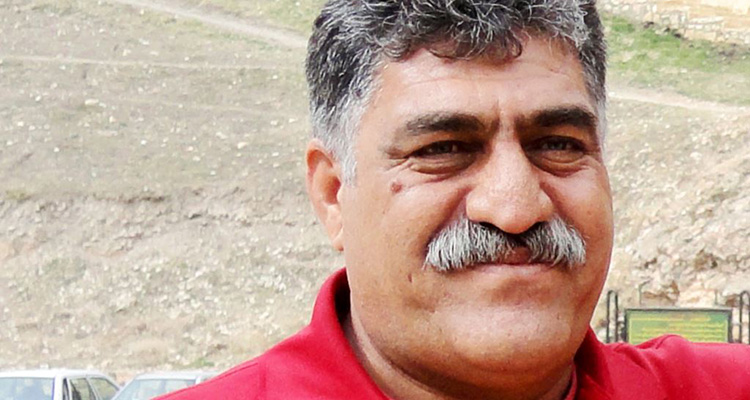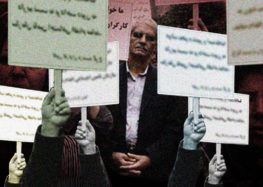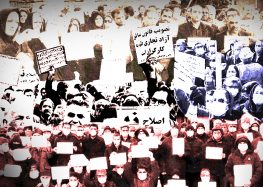Iranian Labor Activist Peacefully Rejects New Prison Sentence

Labor activist Ali Nejati is refusing to serve a six-month prison sentence for engaging in lawful protests against one of Iran’s largest agro-industrial companies near the city of Shush in Khuzestan Province.
Nejati, who was fired from the Haft Tappeh Sugarcane Agro Industrial Company in 2012, will not surrender himself to the prison despite being summoned because he believes the sentence is against the law, a labor activist close to him told the Center for Human Rights in Iran (CHRI) .
“Not only is it illegal to convict him for lawful trade union activities, Mr. Nejati’s poor health does not permit him to be incarcerated,” the source who spoke on condition of anonymity told CHRI on September 11, 2017.
“He has a history of heart disease and has undergone major heart surgeries,” added the source. “Putting him behind bars could endanger his life.”
Nejati, a 55-year-old board member of the sugarcane company’s workers’ union, was ordered to serve the prison sentence issued against him by the Revolutionary Court in Dezful for allegedly contacting labor activists abroad, organizing workers in the province and holding weekly union meetings, according to the source.
In 2011, Nejati served one year in Fajr Prison in Dezful for his peaceful trade union activities and in 2015 he was held for three months in the Islamic Revolutionary Guard Corps’ detention center in Ahvaz, the capital of Khuzestan Province, for leading ongoing protests to demand unpaid wages and benefits for the workers of Haft Tappeh.
“The authorities want to punish Mr. Nejati in order to intimidate the other 60 or so Haft Tappeh workers who are facing prosecution for demanding their rights,” said the source.
Protests over three months’ unpaid wages at the company flared in July 2017 resulting in 53 protesters being summoned to court.
The source continued: “When the workers began their protests, the security agencies sided with the employer. Some of the workers were summoned and detained and the workers were paid some of their back wages, but when the protests died down, the company warned it would not tolerate any more protests and anyone who didn’t like the status quo should quit the firm.”
“The workers did not get paid for their hard work and they protested,” added the source. “Why didn’t the government make the company pay the workers? Why are the workers being detained and punished for demanding pay and yet nothing is being done against the company? It means the government and the judiciary are not impartial; they are on the side of employers.”
The Haft Tappeh sugarcane company began operations under Iranian government control in 1961. With more than 2,700 workers, its current annual sugar production capacity is estimated at 100,000 metric tons.
Iran is a signatory to the International Covenant on Civil and Political Rights, which mandates in Articles 21 and 22 freedom of association and guarantees the right to form trade unions, and to the International Covenant on Economic, Social and Cultural Rights, which guarantees in Article 8 the right of workers to form or join trade unions and protects the right of workers to strike.
The Iranian Constitution also contains provisions for such rights: Article 26 guarantees the right to form “parties, societies, political or professional associations,” and Article 27 states that “Public gatherings and marches may be freely held, provided arms are not carried and that they are not detrimental to the fundamental principles of Islam.”
Despite this, independent labor unions are banned in Iran, strikers are often fired and risk being detained, and labor leaders face long prison sentences on trumped up national security charges.






